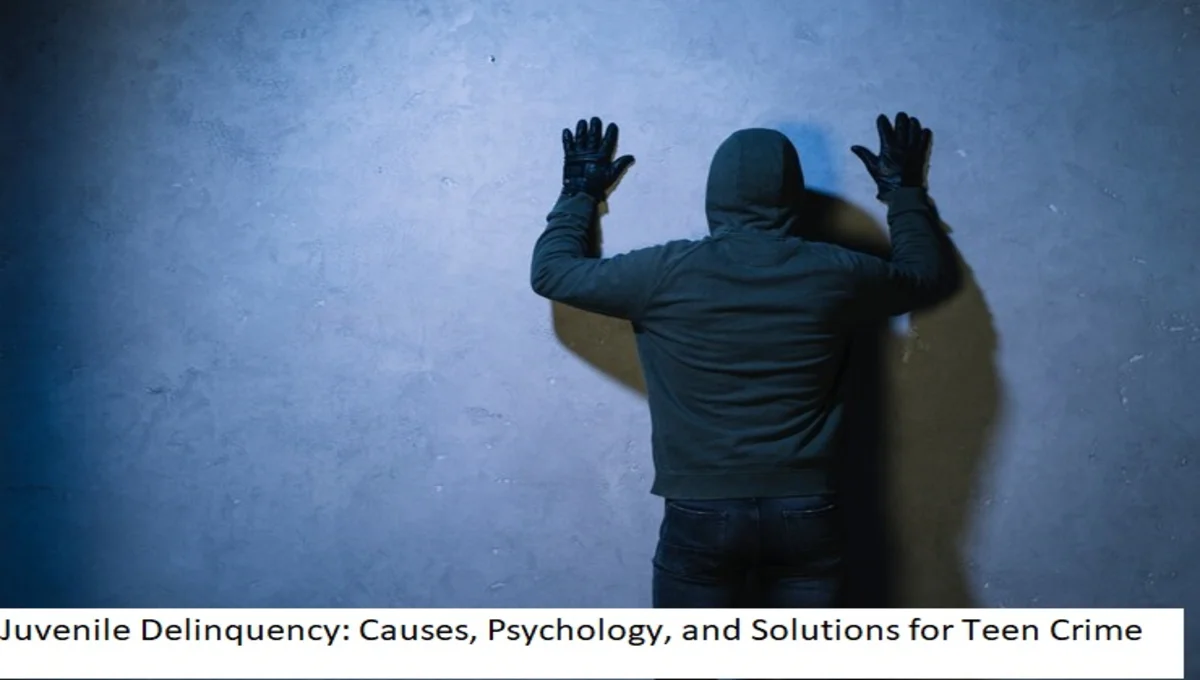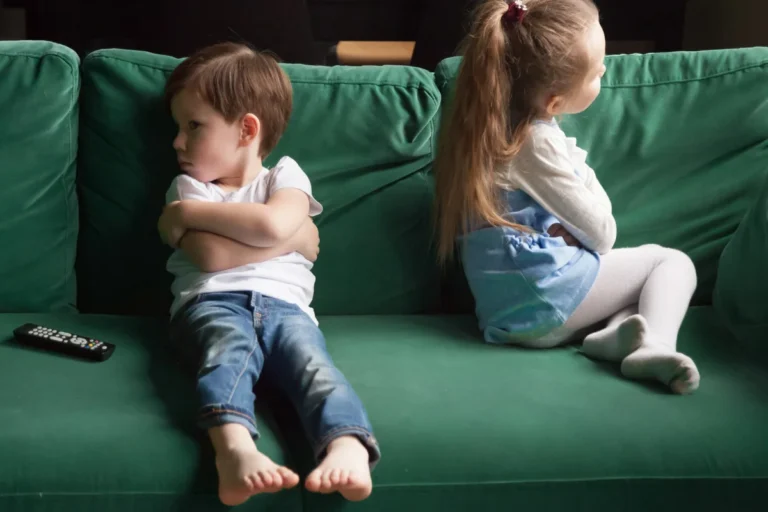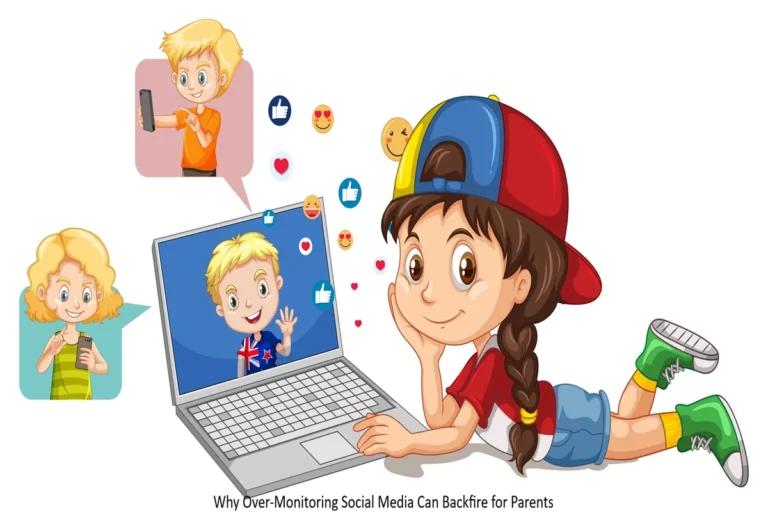
Juvenile delinquency is a growing concern that affects families, schools, and entire communities. When teenagers engage in criminal or risky behavior, parents are often left asking the same question: why is this happening?
Juvenile delinquency goes far beyond petty theft or vandalism. It includes substance abuse, violent behavior, online crime, and other actions that put young lives at risk. To truly understand juvenile delinquency, we must look at the psychology of adolescence, family and environmental influences, and the social pressures teens face today. Only then can parents and society respond in ways that prevent harm rather than deepen it.
Psychological Causes of Juvenile Delinquency
Adolescence is a period of rapid emotional and neurological development, which can increase vulnerability to risky behavior. During adolescence individuals undergo major psychological and emotional and social transformations. During this natural process teenagers tend to push boundaries while they work to define themselves. The process of delinquent behavior among teens stems from different psychological elements which lead them past acceptable boundaries.
1. Impulsivity and Poor Decision-Making
During adolescence the brain continues to develop especially the prefrontal cortex because it controls both impulse control and decision-making functions. The immaturity of the adolescent brain frequently produces impulsive behaviors which fail to consider future consequences. The developmental phase of adolescence sometimes causes young people to act impulsively without thinking about their actions’ long-term effects.
2. Mental Health Challenges
The development of delinquent behavior in teenagers may be linked to various mental health conditions including conduct disorders and depression and anxiety disorders. Teens who suffer from untreated traumatic experiences along with emotional distress might use criminal activities to deal with their problems or express their pent up emotions.
3. Peer Influence and the Need to Belong
At the adolescent stage peers generally exercise more control over teenagers than do their parents or authority figures. Young people participate in dangerous activities that could lead to crime because they want to belong or win approval from their negative peer group.
Teen substance abuse and risky behavior are also common contributors to juvenile delinquency.
Environmental Factors That Increase Juvenile Delinquency
A teen’s environment plays a major role in shaping behavior, especially during formative years. Environment strongly determines the manner in which a teenager will behave. Stable and nurturing environments lower the chances of juvenile delinquency but toxic or unstable environments will increase the risk of juvenile delinquency.
Also Read : Addressing Juvenile Delinquency:How Society and Parents Can Make a Difference
1. Family Dynamics and Parenting Gaps
When parents fail to supervise their children properly or when disciplinary methods are inconsistent or when children witness domestic violence it can result in delinquent behavior. Unstable family environments prevent children from receiving essential emotional support and guidance which makes them more likely to become involved in criminal behavior.
2. Poverty and Economic Hardship
Juvenile delinquency primarily stems from economic disadvantage together with its related inequalities. Young people from economically disadvantaged backgrounds might steal or participate in other criminal behavior to acquire essential needs while following materialistic ideals presented by society.
3. Neighborhood and Community Influence
High-crime neighborhoods tend to make delinquent conduct seem normal to their residents. The prevalence of crime in a community creates learned behaviors among its teenage population who view crime as a survival strategy or a way to fit in.
Societal Pressures Behind Teen Crime
The unspoken expectations that society places on individuals can indirectly cause teenagers to become delinquent. The academic expectations along with social media effects and cultural biases create the framework which shapes teenage views and their behavioral responses.
1.Academic Pressure and Failure Anxiety
The expectation to perform well academically together with social norms creates feelings of insufficiency among young people. Some individuals who feel they have failed will direct their anger through delinquent behavior as a method to take charge of their situation.
2. Social Media and Online Influence
Social media uses its platform to broadcast unattainable life standards while promoting dangerous actions which pressures users to engage with these behaviors. Teens who attempt these behaviors seek attention or validation which may lead them toward criminal activities.
Also Read : Juvenile Shoplifting Gangs: The Disturbing New Trend Fueled by Instagram
3. Cultural Stigma and Marginalization
Certain groups experience alienation due to societal stigmas that focus on racial and ethnic differences and socioeconomic background. The marginalization process drives teenagers to crime as they seek rebellion or want to express their identity.
How Parents and Society Can Prevent Juvenile Delinquency
Preventing juvenile delinquency requires understanding, early intervention, and strong support systems, not punishment alone. The solution to juvenile delinquency requires treating its fundamental causes through education and support programs combined with rehabilitation methods. Punitive measures prove insufficient for preventing delinquent behavior because they do not resolve the core problems which drive such conduct.
1. Parental Guidance and Emotional Support
Strong parenting stands as the fundamental element which prevents criminal activities. The combination of open communication and defined boundaries along with emotional support creates an environment which decreases the chances of delinquent actions among young people. Visit our parenting section to find additional advice that will enhance your parent-child bond.
Also Read : Addressing Juvenile Delinquency:How Society and Parents Can Make a Difference
2. Mental Health Support
Early intervention for mental health challenges is crucial. When teens receive counseling therapy or support group participation they learn to manage their emotions in a healthy manner which lowers their chances of becoming delinquent.
3. Community Programs and Mentorship
Community based programs that offer mentorship, recreational activities, and skill-building opportunities can steer teens away from crime. Through these programs teens find positive role models who help them develop a sense of belonging that prevents them from becoming delinquent.
4. Education and Restorative Justice
Young minds receive their primary development through the educational institutions of our society. The curriculum should include training for life skills along with conflict resolution and emotional intelligence development to help teens manage challenges constructively.
5. Restorative Justice
Restorative justice operates differently from punishment by restoring offenders through community and victim impact restoration. This method requires teens to acknowledge their actions while building their capacity to empathize with others.
Conclusion
The development of juvenile delinquency stems from complex psychological elements as well as environmental conditions and societal influences. The main reason teenagers engage in criminal behavior stems from the lack of guidance they experience throughout their developmentally crucial years. The solution to this complex problem requires an all encompassing strategy that places emphasis on comprehension instead of punishment while focusing on restoration instead of negative judgment.
The path to a brighter future for teens becomes achievable through building strong family bonds and mental health care along with supportive community structures. The guide on positive parenting strategies contains helpful information about managing difficult teenage behaviors. Our collective effort will help decrease juvenile delinquency while enabling teenagers to build confidence and develop responsibility.
Frequently Asked Questions About Juvenile Delinquency
A. The peak age for juvenile delinquency is between 15 and 17 years old. This period coincides with heightened social and academic pressures, increased independence, and ongoing brain development—particularly in the prefrontal cortex, which governs impulse control and long-term decision-making.
A. Yes, prevention is most effective when started early. Evidence-based programs focusing on positive parenting training, early childhood social-emotional learning, and school-based mentorship have been shown to significantly reduce later delinquent behavior by addressing risk factors before they escalate.
A. Absolutely. Teens with unaddressed trauma (such as abuse, neglect, or exposure to violence) are 3–4 times more likely to engage in delinquent acts. Trauma can lead to emotional dysregulation, PTSD, and maladaptive coping mechanisms—often manifesting as aggression, substance use, or criminal behavior.
A. A status offense is an act that is only illegal due to the offender’s minor status—such as truancy, running away, or violating curfew. These are often early warning signs of underlying family, school, or mental health issues and can be critical intervention points before more serious criminal behavior develops.
A. For most non-violent offenders, incarceration increases recidivism rates. Studies show that community-based alternatives—such as multisystemic therapy (MST), restorative justice programs, and intensive mentoring—are more effective at reducing reoffending by addressing root causes while keeping teens in pro-social environments.
A. Key protective factors include:
A stable, supportive relationship with at least one caring adult (parent, mentor, teacher)
Active engagement in school and extracurricular activities
Strong community connections and access to mental health support
Clear family expectations with consistent, non-punitive discipline
This article is part of our in-depth series on juvenile delinquency, child safety, and positive parenting strategies.


